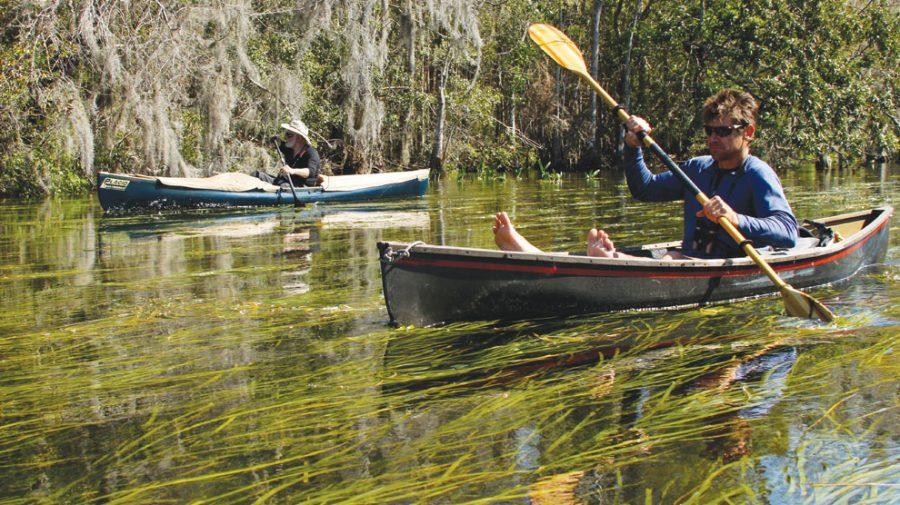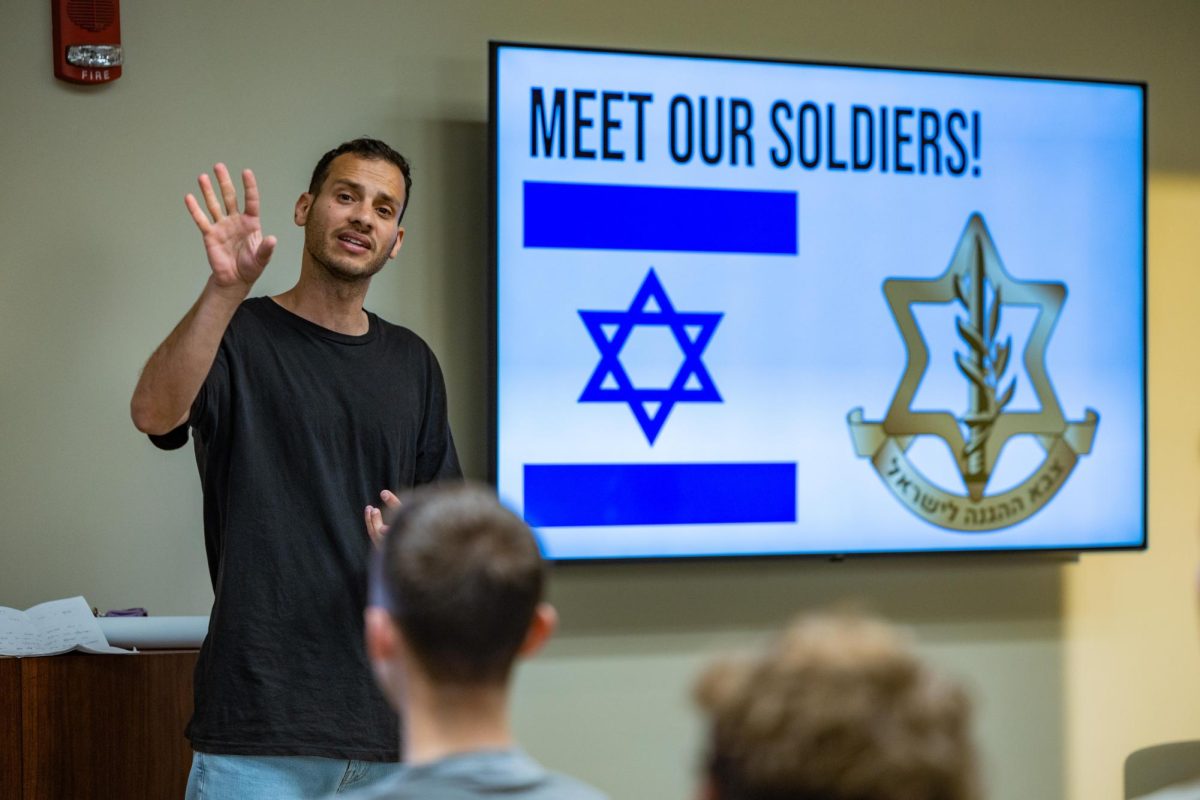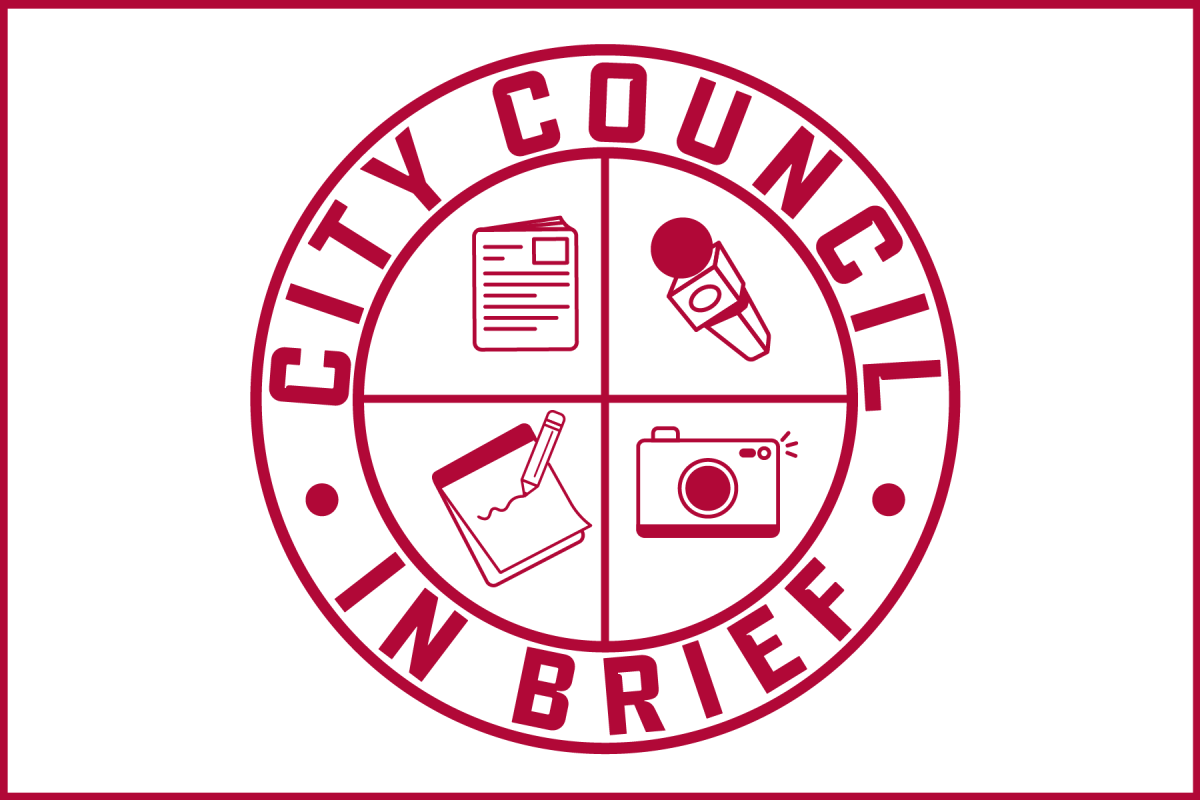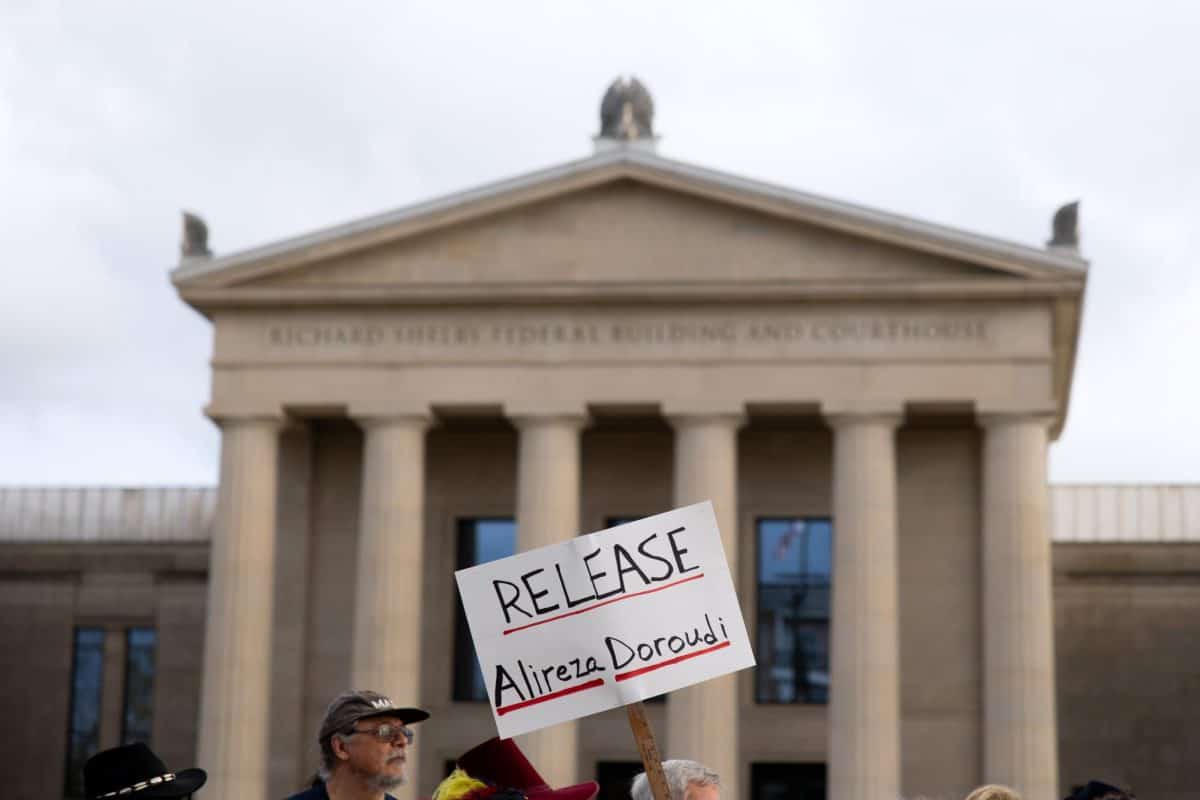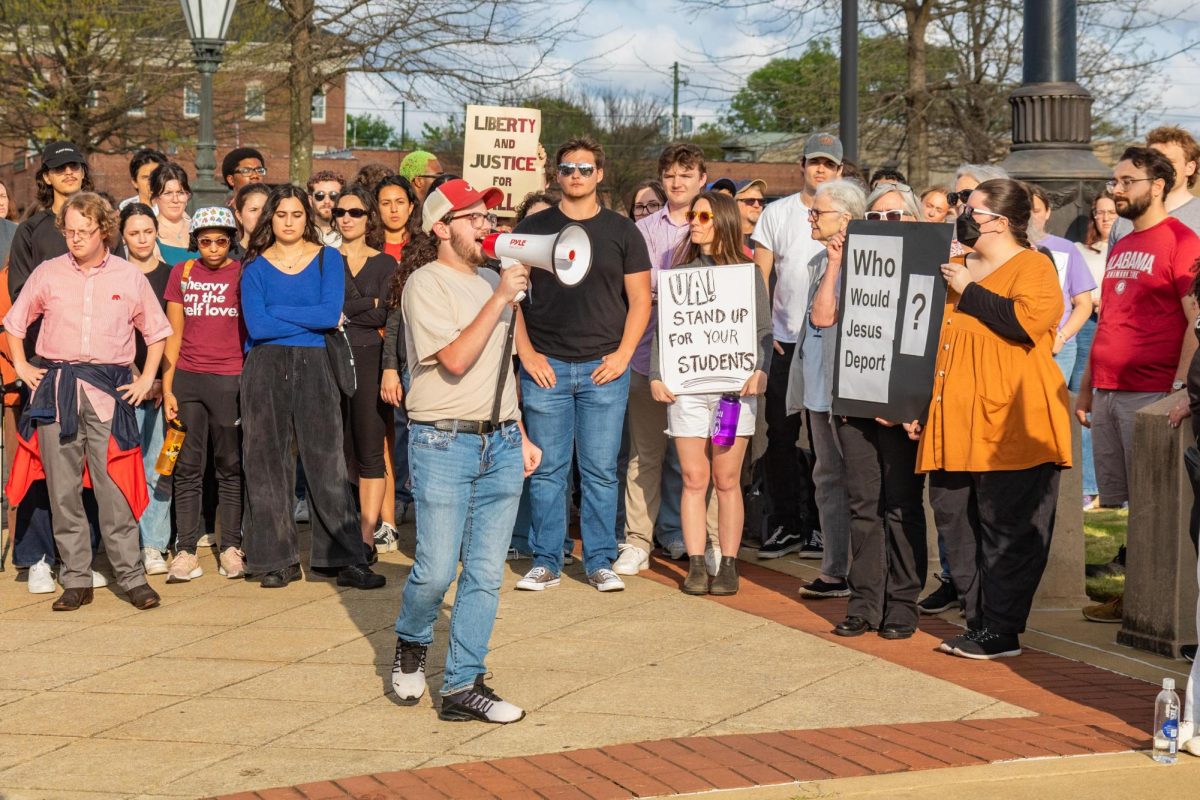“He’s like a real life Forrest Gump!” said Mallory Flowers, a sophomore majoring in applied math.
Students gathered in the Student Activity Center at the Student Recreation Center on Monday night to hear conservationist and adventurer John Davis, 47, speak on his 10-month-long, 5,000-plus-miles trek from Florida to Quebec.
In what he describes as part conservation effort and part personal adventure, Davis is biking and kayaking his way north, stopping along the way to immerse himself in local wildlife and speak with local naturalists.
Davis, a native of northern New York, is making his journey in conjunction with the Wildlands Network, a conservation team that works to sustain and connect wildlife habitats that promote healthy animal movement throughout the continent.
“Our aim with Trekeast (the name of the hike) is to build the momentum to create a large, wide mosaic of natural habitats – a wildway – running through the Southeast coastal plain and up the Appalachians, taking in the wilder parts of the Eastern United States.”
Davis’ talk centered mainly on his experiences so far throughout Florida and southern Alabama as he recounted sightings of panther tracks, close calls with water moccasins and the surprising diversity of plant and wildlife in Alabama.
“I was impressed to find out that Alabama is such a diverse state,” Flowers said. “You always see these amazing nature shows about exotic places, but hearing him talk, it looks like there should be one about Alabama too.”
After recounting his experiences to date, Davis opened the floor to questions. Many students were interested in hearing about the logistical side to Davis’ journey, such as his diet, equipment and travel plan.
While Davis says an experienced biker could finish his journey in a few months, he is planning on taking a more relaxed pace so he can learn along the way.
“My object is not to go fast, but to learn and meet with conservationists and naturalists,” he said.
His journey will require various equipment, and Davis said he relies on support from colleagues along his journey for supplies. Davis travels with basic camping and outdoor gear and the necessary technology to stay connected with his colleagues.
Depending on his day’s itinerary, Davis can travel as little as one mile a day or as many as 150 miles per day. On these longer days he can burn up 10,000 calories, which will pose a problem if he is not careful to eat appropriately.
“I have to be really careful not to lose weight,” he said. “Once you lose weight, you start to eat into muscle tissue and that can really get you into trouble.”
Davis does not pack a camp stove to prepare meals, but instead relies on a diet of high-energy foods such as chocolate, peanut butter, granola, breads and dried meats.
After opening the floor to questions, Davis said he was interested in hearing audience members’ opinions of how to connect young people with the conservation movement. Many students said they believe interactions with conservationists like Davis are a great start.
“I think it’s important for college students to hear from people like John,” said Will Dodd, a sophomore majoring in history. “We can’t depend on government or politicians to take the initiative. It has to start with a grassroots movement and that is what makes messengers like John so important.”
Flowers echoed these statements, saying veteran conservationists like Davis can teach young people a lot.
“It’s great to know that there are real ways to make your passion your job, the way John has,” she said. “Our generation will face the unique challenge and opportunity of restoring our natural heritage, and it’s something I think we can learn a lot about from those who have been doing it already.”
Daniel Marbury, an employee of the University Center for Economic Development who works to promote outdoor recreation and eco-tourism and organized the talk, heard about Davis and decided he would be a perfect speaker for the UA Environmental Council – and young people in general.
“This adventure, and the excitement—I thought it would be a good message to appeal to an audience that we don’t typically reach with clean ups and other environmental projects,” Marbury said. “We don’t always talk about it the adventure and the excitement of the outdoors.”
You can learn more about the Wildlands Network at twp.org and follow John’s progress on his blog, twp.org/trekeast.



